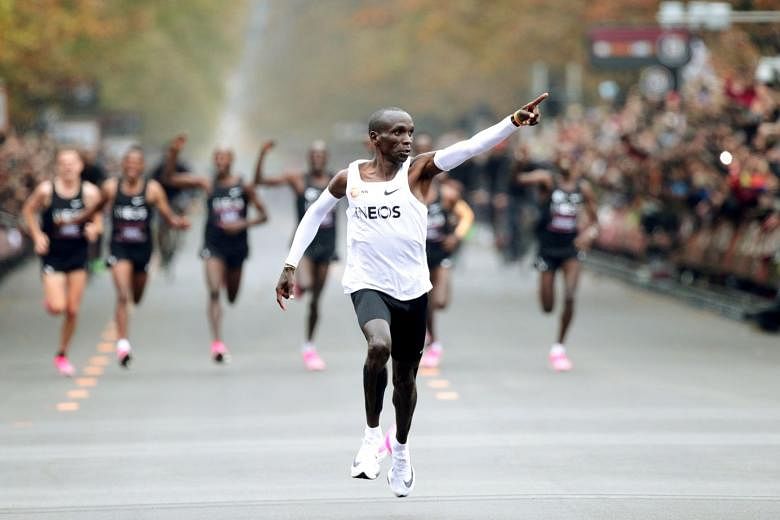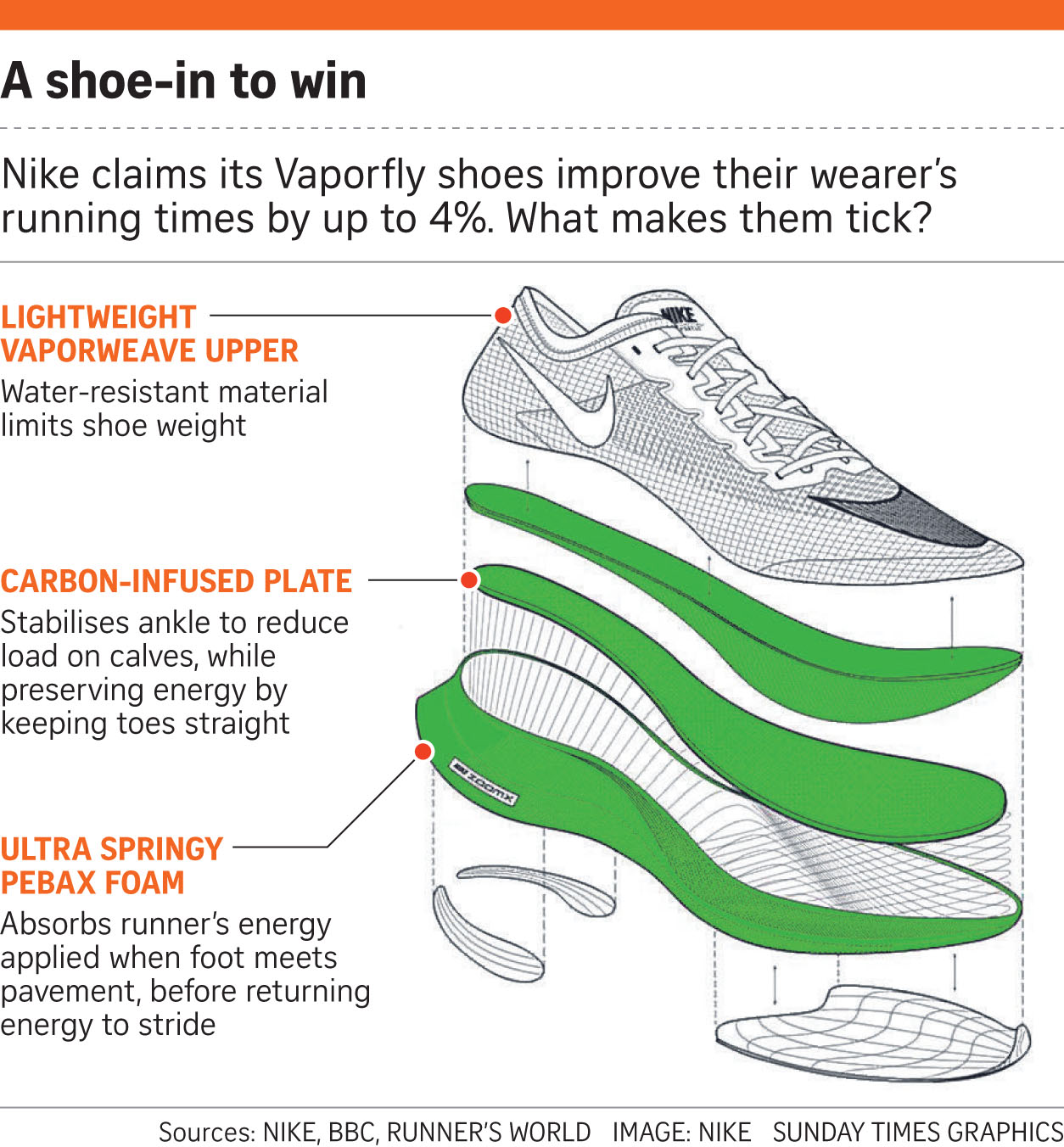LONDON • Nike Vaporfly prototype shoes used to run the world's first sub-two-hour marathon will be banned from professional sport under a landmark decision on Friday that also allows retail versions of the high-tech shoes to be used in the Olympics.
The first shoe ban by World Athletics (WA), the sport's governing body, addresses concerns that technological advances are giving athletes an unfair and unnatural advantage.
It limits future use of carbon fibre plates and some track spikes but stops short of outlawing the Vaporfly models that have helped re-write the record books for elites and amateurs alike.
Prototype variants of the Vaporfly used by Eliud Kipchoge to run the first sub-two-hour marathon and by fellow Kenyan Brigid Kosgei to smash the women's marathon world record in 2hr 14min 4sec in October last year were both reported to contain triple carbon plates inside thick, ultra-compressed foam.
Those have been banned and from April 30, any future version, of any shoe, must have been available to the general public for four months before being allowed in elite competition - putting paid to the use by Nike and others of prototypes by their athletes in major races.
Nike unleashed the Vaporfly in 2016 and various versions have since dominated the elite and "serious recreational" side of road running. The shoe, which costs around US$250 (S$340) and has a lifespan of only around 320km, is now widespread throughout the fields of every major race.
Kipchoge and other leading athletes have welcomed the shoes as a natural technological advance, but others say they have gone too far, with Professor of Sport and Exercise Science Yannis Pitsiladis at Britain's Brighton University calling them "technological doping".
Nike promises improving times of up to 4 per cent. Over the course of a 2hr 10min marathon, that is a difference of more than five minutes. The five fastest official marathons of all time have come in the shoes, all within the last two years.
"It is not our job to regulate the entire sports shoe market but it is our duty to preserve the integrity of elite competition by ensuring that the shoes worn by elite athletes in competition do not offer any unfair assistance or advantage," WA president Sebastian Coe said in a statement yesterday.
WA said any records set under the previous rules will stand.
"We can draw a line by prohibiting the use of shoes that go further than what is currently on the market," Mr Coe said.
"I believe these new rules strike the right balance by offering certainty to athletes and manufacturers as they prepare for Tokyo 2020, while addressing the concerns that have been raised about shoe technology."
The new rules state that road shoes must have soles no thicker than 40mm and not contain more than one rigid, embedded plate.
Manufacturers other than Nike have also released, or are developing, their own carbon-insoled shoes, but WA's ruling would now appear to have put the brakes on those.
REUTERS, BLOOMBERG


